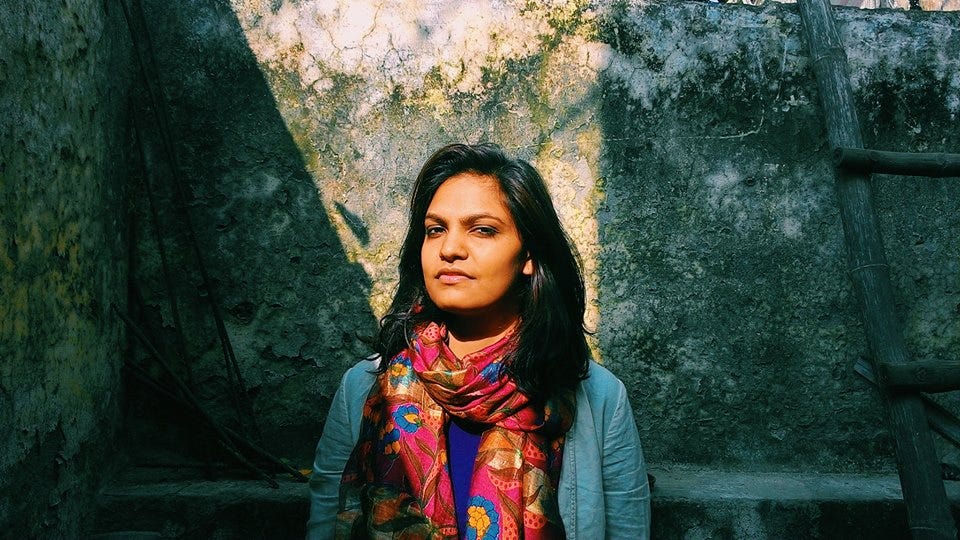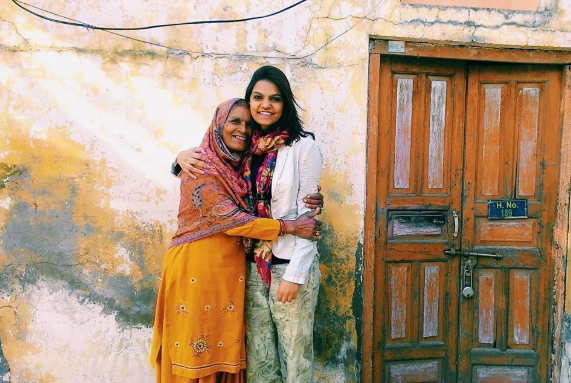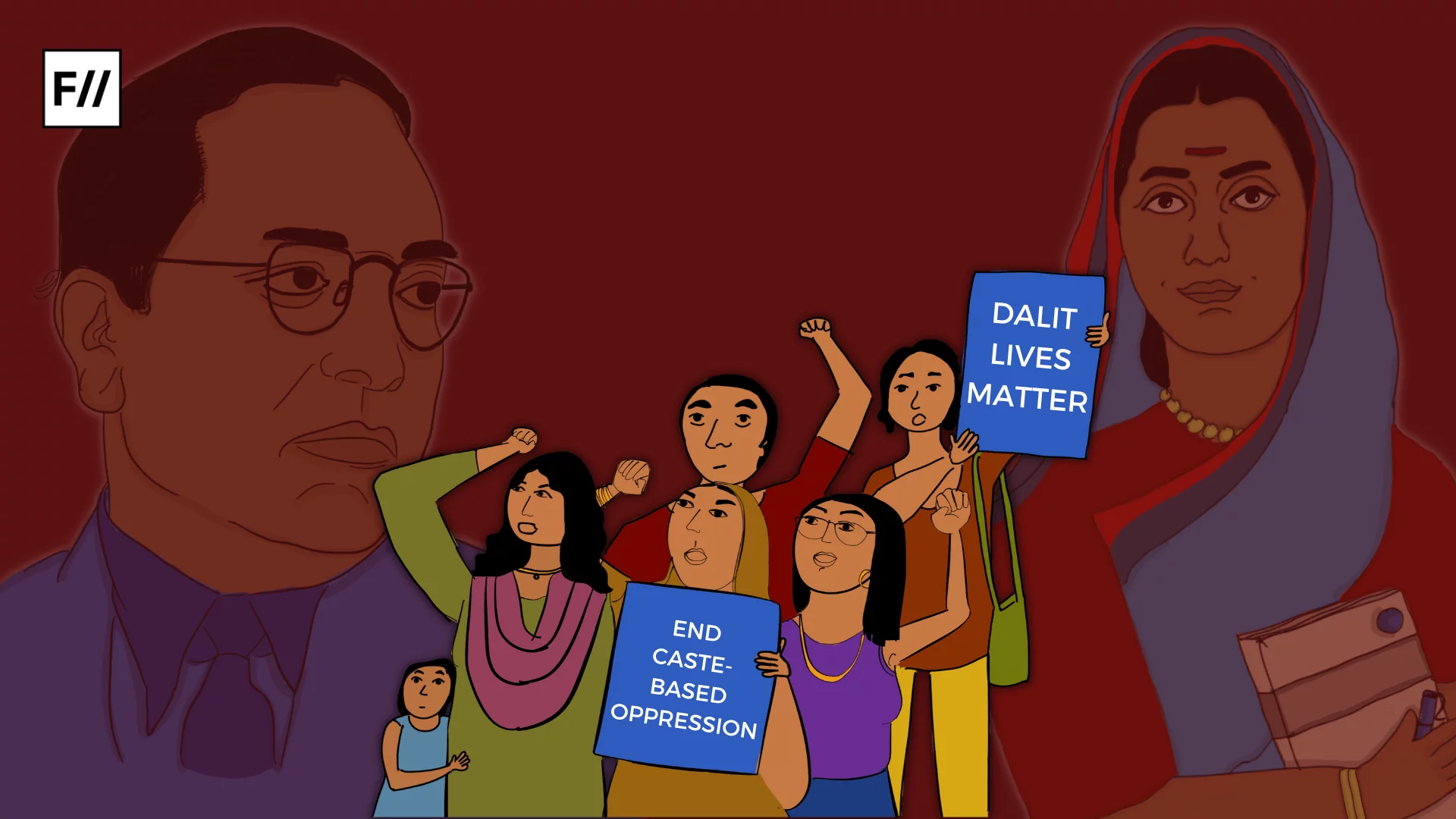Posted by Priyanca Singh Ambalvi
“You should write about your Dalit experiences”, said my friend. “Your elite Dalit experience”. I almost nodded in agreement, instantly realising how furious it made me.
Yes for a Dalit woman, I live a very privileged life but what does my privilege exactly include? As far as I know, I am just a regular working class educated woman living an independent life. Apparently meeting the basic requirement makes me elite, and in my case, an elite Dalit woman. However, when the same applied to a Ssavarna woman, it qualifies her to be a ‘normal’ girl.
Just the thought of trying to deconstruct ‘elite Dalit woman’ seems daunting. It is indeed a profound, almost soul searching task, but I am ready today.
So what is it that makes me an elite (Dalit woman) and them not so elite?
The point that I am trying to make here is that ‘elite Dalit’ is an oxymoron. It is intrinsically and fundamentally against the notion of being a Dalit in an Indian society.

Yes, I accept that I am privileged when compared to other women from my community. Yes, my privilege has allowed me to enter spaces unimaginable to a Dalit, leave alone a Dalit woman.
I learnt to talk like the Savarnas. I learnt to walk like the Savarnas. I learnt to eat like the Savarnas – but I couldn’t learn to think like the Savarnas. From centuries of ostracisation and lack of access to knowledge systems to inadequate resources, my struggles are of a very different kind, even with the badge of ‘privilege’.
My parents have seen the world, but they chose to go back to their community because, for a Dalit person, the world outside can be very lonely and alienating.
My privilege led me to Savarna social circles and I ended up dating Savarna boys. One of them I almost got married to – almost, because “
For the first time ever in my life, I was suddenly slapped with this new imposed identity of mine. I recalled my mother’s words to me as a child, “Beta
The definition of what it meant to be ‘us’, was once again slapped across my face 20+ years later. Over the next few years, I don’t know if I fell out of love or if that is even possible, but I was not going to be okay with being treated like a second class citizen especially in the name of love. And honestly, I was way out of the Savarna boy’s league.
I am also miserably judged for coming from a very cool, hip family as my parents had lived abroad and till the age of 18. I had mostly lived in and out of the country since my father was in the foreign services. Imagine a Dalit man’s experience as a diplomat. As part of the diplomatic culture, there are a lot of parties that happen. Imagine the Dalit man’s experience who had never feasted on the other side of the table, but always at the receiving end of one.
Imagine a Dalit woman’s experience – a woman, who doesn’t know how to read, write, or speak English. She had to host parties where one had to engage with the educated, the elite, the rich and she has no idea what it means to be any one of them.
As a kid, I would always wonder why my parents never had any friends or a ‘social life’. As I grew older, I understood that it is very very difficult to engage with the world from that mind space. Ever wondered why Dalits, Muslims or people from other marginalised communities live in ghettos –that’s exactly why. It feels good, it feels comfortable.
There aren’t too many public spaces, conducive spaces where I can share my Dalit experiences.
My parents have seen the world, but they chose to go back to living with their community because, for a Dalit person, the world outside can be very lonely and alienating. It is rare that someone understands or empathises with your experience. On the other hand, Brahmanical patriarchy has also ostracised Brahmin women!
The Dalit Body
I come from a farming community or semi-farming with people in government jobs here and there. Genetically speaking, farming does reflect in our eating habits. It is reflected in the way we look. It is reflected in the way we live.
I am
I must admit that centuries of having little food has made us pretty healthy. Especially from the semi-agricultural family that I belong to, my father has always laid great emphasis on seasonal vegetables, grains, and fruits. So, if you were to randomly pick words, like fit, organic, tall, slim, healthy, I would sound like an organic tea from a chic south Delhi store – bourgeois indeed.
The world Dalit makes you uncomfortable and the word ‘elite’ makes us uncomfortable.
I must confess though, that I never really felt deeply rooted in my Dalit identity. However, over the years, as I was forced to take my rose-tinted glasses off I was almost coerced to face my identity as a Dalit woman in today’s time. As if fighting patriarchy wasn’t exhausting enough.
The fact that my Instagram bio reads ‘#thirdculturekid’ today is because I am a second generation reservation kid, my father cleared the SSC exams because of which I got to live that was given to me, which I am certainly grateful for. Otherwise, there is no way you would be reading this article today! As they say, “until the lions learn how to speak, history will always glorify the hunter.”
There aren’t too many public spaces or conducive spaces where I can share my Dalit experiences. In fact, these conversations mostly happen in really intimate settings, and writing happens to be one of those spaces.
Certainly, no one in my entire family (from both sides) is educated enough. I am the first woman to have completed her bachelor’s degree and her master’s. And today I sit comfortably, at the age of 30, typing on a
Also read: From Shankar To Pranay: Why Does Caste Extremism Continue To Haunt Our Nation?
First, you fight racism. Then you fight patriarchy. Then you fight casteism. And then you ask me, why the resting bitch face?
This article has been republished here with full permission.
About the author(s)
Guest Writers are writers who occasionally write on FII.





Hi Priyanca,
You look stunning and you have a staggering expression. seems you are straight from the horse’s mouth. Dear, ‘Elite Dalit’, this caption impressed me more than anything else. Marriage institution now is modernized but not the mindset and the perspectives. So all in all back to the caste and sub-caste, is still more pathetic. Sounds ridiculous, in-fact friends and fans are around till the date you decide to marry and the reality show begins leaving virtual show way back. Anyhow i wish you the best, to the journey of so called ‘ Elite Dalit’ women.
I hope ur next gen will give up quota .